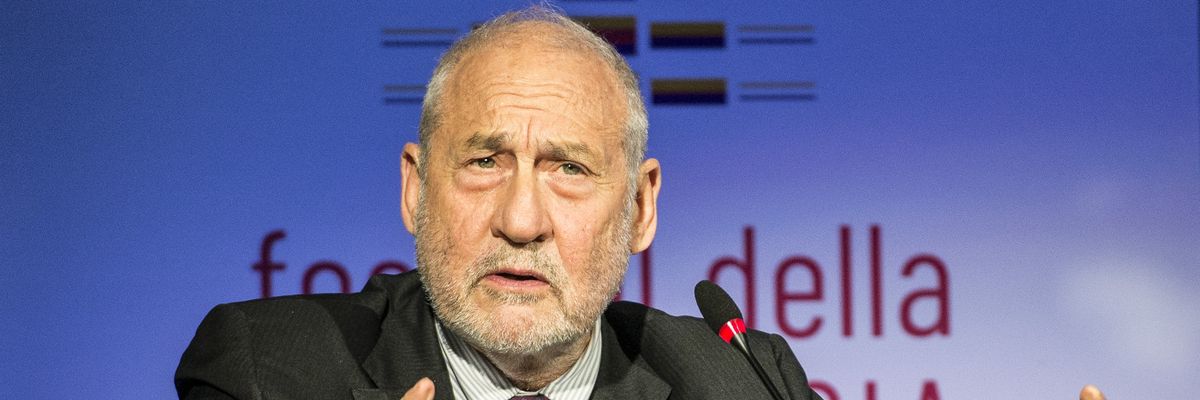Economist Joseph Stiglitz said this week that he is highly concerned about the potential of unregulated artificial intelligence to supercharge global inequality, which exploded during the coronavirus pandemic as billionaires saw their wealth surge while tens of millions were pushed into poverty.
"I'm very worried," Stiglitz, who won the Nobel Memorial Prize in Economic Sciences in 2001, told Scientific American. "In a way, robots have replaced routine physical work. And AI now is replacing routine white-collar work—or not replacing [it] but reducing the demand. So jobs that were routine white-collar, I think, will be at risk."
"And there are enough of those that it would have a macroeconomic effect on the level of inequality," Stiglitz added. "It could amplify the sense of disillusionment: [in places where deindustrialization occurred, there was a] rise to the deaths of despair. They were located in particular places, but this routine work occurs everywhere."
A recent report by the Organization for Economic Cooperation and Development (OECD) found that AI is "likely to significantly impact jobs" as companies continue to adopt the rapidly developing technology.
"When considering all automation technologies including AI, 27% of jobs are in occupations at high risk of automation," the OECD estimated.
Stiglitz acknowledged that "with the right policies," AI could lead to "higher productivity and less inequality, and everybody would be better off."
"But you might say the political economy, the way our politics have been working, has not been going in that direction," said Stiglitz. "So at one end, I'm hopeful that if we did the right thing, AI would be great. But the question is: Will we be doing the right thing in our policy space? And I think that's much more problematic."
Stiglitz is hardly the only economist concerned about the disruptive and potentially damaging effects AI could have on workers across the globe, particularly if governments don't heed growing calls to aggressively regulate the technology.
Yingying Lu, a research associate at the Crawford School of Public Policy's Center for Applied Macroeconomic Analysis, wrote earlier this year that "although economists have different opinions on the impact of AI, there is general agreement among economic studies that AI will increase inequality."
"One possible example of this could be a further shift in the advantage from labor to capital, weakening labor institutions along the way," she added.
Stiglitz similarly warned that AI is being developed in the context of a system in which "workers don't have much bargaining power."
"So in that kind of world, AI may be an ally of the employer and weaken workers' bargaining power even more, and that could increase inequality even more," said Stiglitz. "There is a role for government to try to steer innovation in ways that are more productivity-increasing and job-creating, not job-destroying."




